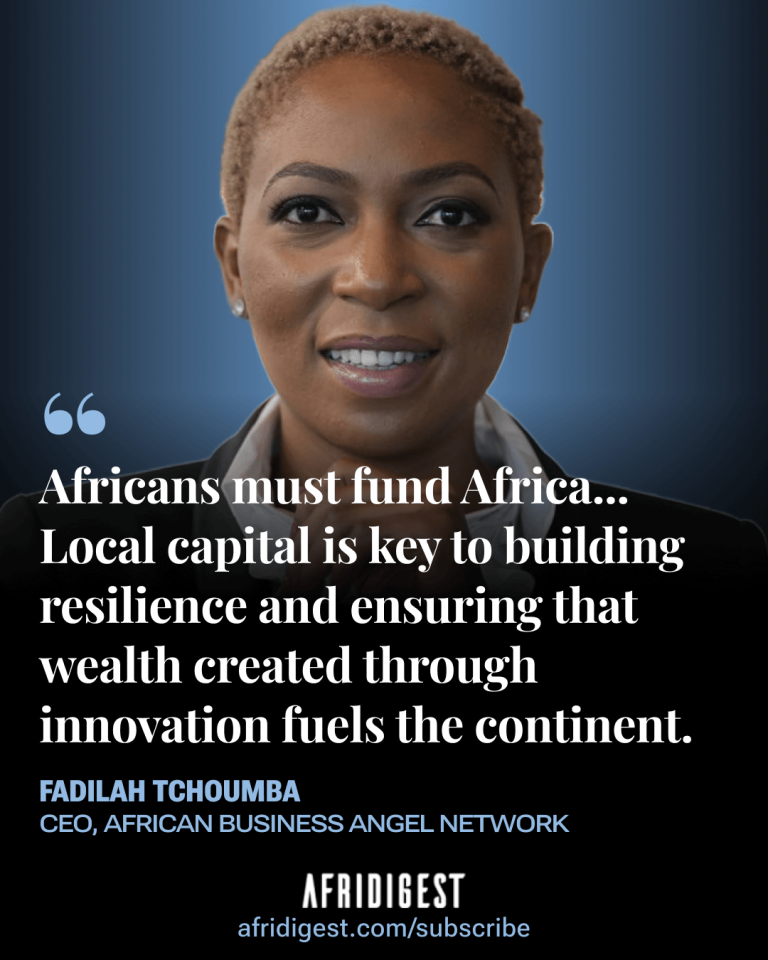
“Africans must fund Africa.”
That’s Fadilah Tchoumba, CEO of the African Business Angel Network (ABAN), making the case for why robust domestic investment ecosystems are essential for the continent’s future.
“Local capital is key to building resilience & ensuring that wealth created through innovation fuels the continent,” she adds.

Over the last decade, ABAN has built a formidable movement with impressive results:
- A community of 5,000+ angel investors organized in ~80 networks across 35+ African countries
- $35 million mobilized in early-stage investments that laid the foundation for larger VC funding
- 200+ women angel investors activated across seven female-led networks
- Support for iconic African startups that later attracted global investment
“There would not be a Flutterwave or Paystack or Affinity Africa without the participation and contribution of African business angels from Nigeria, Kenya, South Africa, Egypt,” Tchoumba emphasizes.
“Africans across the continent have been the driving force towards attracting the global capital we’ve received across the continent… Africans operating within Africa are the only instrument that can set that base… [We] must commit the first and initial capital to build traction and make it viable for VCs and other funders to come on board. If it’s not driven from the inside, outsiders can’t participate.”
ABAN puts this into practice with initiatives like the Catalytic Africa matching fund that doubled investor commitments and mobilized $2.5 million from 200 business angels in just 12 months.
ABAN has also created practical infrastructure for cross-border investing. Their Rwanda-based facility lets investors keep funds in hard currency while backing companies continent-wide.
This proved crucial when global VC funding disappeared overnight during the recent market downturn — local networks kept deals flowing while foreign capital fled.
ABAN’s various initiatives are building toward something bigger:
“The next decade is about African Business Angels becoming market-makers, not just funders.”
“By leveraging local knowledge and networks, African investors can de-risk frontier sectors like AI or health-tech where global capital remains cautious… ABAN’s role is to keep equipping investors to seize these opportunities because ultimately, Africa must fund Africa.”
What’s your take?
- Is focusing on angels operating on the ground the key to building truly sustainable innovation ecosystems across Africa?
- What role should governments play in creating incentives for local capital participation?
- How might diaspora investors better collaborate with local investors & angel networks to increase investment flows?





Share: